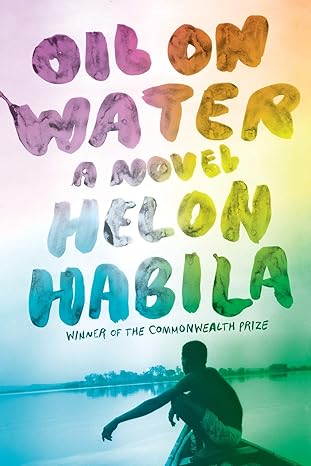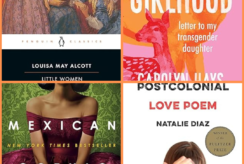Here’s my review of Oil on Water by Helon Habila – a petrofiction novel which won The Commonwealth Prize and Caine Prize.
For context, petrofiction stems from petroleum and fiction. A specific text that focuses on petroleum culture in political economics and environmental impact. Although Habila’s novel begins with a journalist investigating a kidnapping, the protagonist finds himself at the center of petroleum culture in the Niger Delta and Big Oil’s political and environmental power structure.
Survival in Communities
Our protagonist, Rufus, reveals that communities on the Niger Delta live in survival mode. Their culture is determined by climate change, Big Oil, militants, and the military. Early on, we encounter Rufus’ “tour guide” (a local man), offer his son up to Rufus. The local man wants his son to live a better life. This theme continues on within Nigerian communities located by the Niger Delta and petroleum-filled waterways. Habila communicates that communities, specifically of color, live in survival mode. For these communities, their hands are tied. In the literal sense, the military or militants capture them on selfish reasons because the military and militants are at war due to Big Oil’s occupation on Nigerian land. On the other hand, the Nigerian communities must also commit to a form of sacrifice. For the old man, he wants to sacrifice his relationship to his son, so the boy can be better off than his old man.
Gendered Violence
The novel portrays violence against women very clear. Although, I am unsure of Habila’s descriptions in the frame of patriarchy. From the start, Rufus is on a mission to rescue a British woman from a militant kidnapping. She is the wife of one of the Big Oils. Hence, the militants present the kidnapping as a push-back against the Big Oils occupation. However, Rufus questions as to why this white, British woman has a sole focus in the news and aid, meanwhile the women on the Niger Delta go missing without a trace or end up dead without a news report. I love the Habila is calling awareness to racism in gendered violence. However, Habila often times depict women as someone to manipulate, so he can extract information from them for his journalism. Also, the women are placed in domestic roles, pictured as helpless and only there to provide bed and food for Rufus on his journey. The line between commentary on patriarchal standards versus descriptors that add to the patriarchy are rather blurred.
Nonetheless, my review of Oil on Water is to check it out in the scheme of petrofiction. Habila provides an entryway into eco-politics, raising awareness, and calling for action against climate change. Whether you come to love or hate Rufus, the journalistic perspective provides a “militant” literature against climate change and Big Oils.



